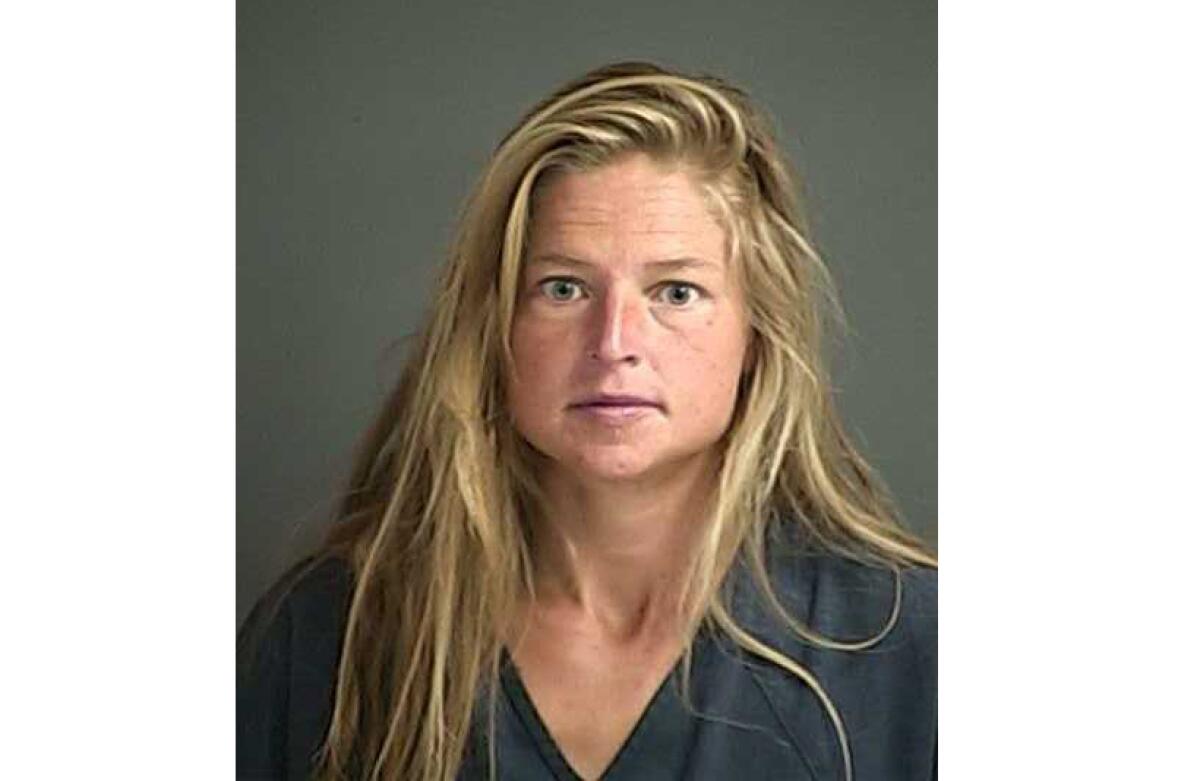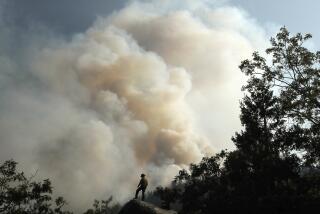Caltech grad charged with setting Fawn fire is declared mentally unfit to stand trial

A Shasta County judge ruled on Tuesday that a Palo Alto woman charged with starting the Fawn fire in September is mentally unfit to stand trial.
Alexandra Souverneva, 31, is accused of sparking a blaze in forest land north of Redding that injured three firefighters, destroyed 185 buildings and charred more than 8,500 acres.
Souverneva graduated from Caltech in 2012 with bachelor’s degrees in chemistry and biology and worked as a chemistry research associate at Bay Area companies from 2016 to 2019, according to her LinkedIn profile.
In September, she was arrested and charged with arson in connection with the wildfire.
On Tuesday, Judge Adam Ryan ruled that Souverneva was mentally incompetent to stand trial and put the prosecution on indefinite hold, according to Briona Haney, spokesperson with the Shasta County district attorney’s office.
According to the ruling. Souverneva is unable to aid her attorneys in her defense because she does not understand the court proceedings.
Last month, the judge ordered an evaluation of Souverneva’s mental fitness by two psychologists. Both found her incompetent to stand trial, according to the district attorney’s office.
Souverneva’s defense attorney, Gregg Cohen, initially raised doubts about his client’s competency.
Souverneva will now be evaluated for placement in a state mental hospital, where she will be treated, with the possibility that she could be declared competent to stand trial in the future.
Cohen did not immediately respond to requests for comment.
Souverneva has also been charged with felony arson in Monterey County in connection with an Aug. 8 fire, according to Chris Knight, a Monterey County assistant district attorney.
Souverneva claimed that on Sept. 22, the day the fire started, she was trying to boil creek water that was contaminated with bear urine, according to a criminal complaint.
She told California Department of Forestry and Fire Protection investigators that she was hiking to Canada when she became thirsty and found a puddle of water near a dry creek bed, according to court records.
After she attempted to filter the liquid with a tea bag, she tried to start a fire and boil the water, she said.
She drank the water and walked uphill, she told authorities, until she saw smoke and “airplanes dropping pink stuff,” then contacted the fire department.
Quarry workers reported seeing a woman matching Souverneva’s description who was “acting irrationally” near where the fire began.
Court documents indicate the woman continued walking east into vegetation, leaving behind two carbon dioxide cartridges and a battery along a dirt road.
Later that night, fire officials found Souverneva as they battled the growing blaze and assessed her for possible dehydration.
At the time, she was carrying a cigarette lighter and a “pink and white item containing a green leafy substance she admitted to smoking that day,” Cal Fire Officer Matt Alexander reported.
She also was carrying carbon dioxide cartridges that matched the ones found near the quarry, according to the criminal complaint.
After graduating from Palo Alto High School in 2009, Souverneva was a research assistant and a teaching assistant during her studies at CalTech, also writing for the school newspaper, according to her LinkedIn.
She was a doctoral student in environmental chemistry at State University of New York College Environmental Sciences and Forestry from 2014 to 2015.
From 2016 to 2019, she was a research associate in chemistry for Nanosyn in Santa Clara, then a research associate in medicinal chemistry at Gilead Sciences in Foster City for eight months.
Souverneva is not the first Bay Area resident with ties to academia to be charged with starting wildfires this year.
Former college instructor Gary Stephen Maynard was charged in connection with a string of arson fires on federal forest land, including near where the massive Dixie fire burned in Northern California.
Maynard is reported to have worked at several California universities, including Santa Clara University.
More to Read
Sign up for Essential California
The most important California stories and recommendations in your inbox every morning.
You may occasionally receive promotional content from the Los Angeles Times.











